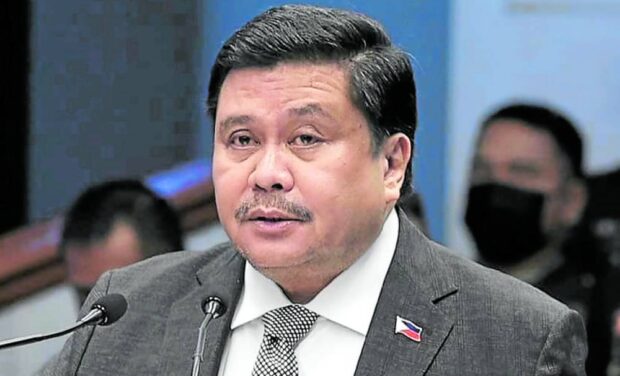AFP personnel with low pay nix contributions to pension fund
MANILA, Philippines — Enlisted personnel of the Armed Forces of the Philippines are opposed to the Marcos administration’s plan to deduct 5 percent in pension premiums from the salaries of active military and other uniformed personnel (MUP), Sen. Jinggoy Estrada said on Monday.
The senator also disclosed at the Kapihan sa Senado forum that the Government Service Insurance System (GSIS) had agreed to manage the MUP pension fund.
Estrada, chair of the Senate national defense and security committee, said the estimated 160,000 enlisted personnel of the AFP, or their lower-ranking soldiers, regarded as “quite burdensome” the plan to have them contribute 5 percent of their monthly pay to their retirement fund.
According to the lawmaker, AFP personnel expressed opposition to restructuring the MUP pension system as proposed by Finance Secretary Benjamin Diokno during a recent “roadshow” by President Ferdinand Marcos Jr.’s economic team.
“The stakeholders still have several concerns, like, for example, the initial 5 percent monthly contribution rate. Some of them find it quite burdensome because it’s too high for them,” Estrada said.
Article continues after this advertisement‘That’s big’
He said a soldier with the rank of private only makes about P29,000 a month, while the highest-ranking enlisted personnel, the chief master sergeant in the Army and their equivalent ranks in other AFP units, receive around P38,000.
Article continues after this advertisement“So if you take away 5 percent, that’s big for low-ranking soldiers,” Estrada said.
“The enlisted personnel comprise the bulk of the AFP’s active force… They may not be able to shoulder the 5 percent they would have to contribute to the pension fund [if the plan for its restructuring were to be implemented],” he added.
But the senator also acknowledged that lowering the proposed contribution to the MUP fund would not help the government meet its fiscal targets in reforming the pension system.
Other options
Estrada said he suggested to the economic team, which Diokno heads, that properties of the now defunct AFP Retirement and Separation Benefits System (RSBS), which used to manage the soldiers’ pensions, be leased out.
He said AFP chief of staff Gen. Andres Centino had told him that the RSBS still owned “a lot of properties” that the government might utilize to generate funds.
“They can sell, lease, to augment the pension [fund],” Estrada said.
He also said the GSIS had agreed to handle the MUP fund once Congress approves a measure aimed at restructuring the retirement system—such as Estrada’s own Senate Bill No. 284.
“That’s the most important thing for me because if we let other people handle it, it might go bankrupt,” he said. “Let’s give it to the experienced and the experts in the GSIS.”
Unlike the GSIS and the Social Security System, which are partly financed by contributions of their members, the MUP fund is fully funded by the national government and even by borrowings, or unfunded obligations.
The government’s plan to have all MUPs contribute to their fund is aimed at addressing the government’s unfunded obligations, which have already ballooned to P9.6 trillion, according to Diokno and other finance officials, citing 2019 figures.
Under their proposal, as approved by a technical working group of the Department of Finance, active servicemen would contribute 5 percent of their monthly pay for the first three years of the new, restructured MUP pension system.
On the other hand, new entrants to the uniformed services would contribute 9 percent of their basic salary and longevity pay.
President Marcos wants the MUP fund to be self-sustaining to prevent its projected depletion in the next six years.
But the plan has encountered resistance, not only from MUPs but also some of Estrada’s colleagues like Senators Ronald dela Rosa and Robinhood Padilla.
Dela Rosa called for a careful study of that proposal, warning that its immediate implementation could “weaken” the country’s defense and security system.
